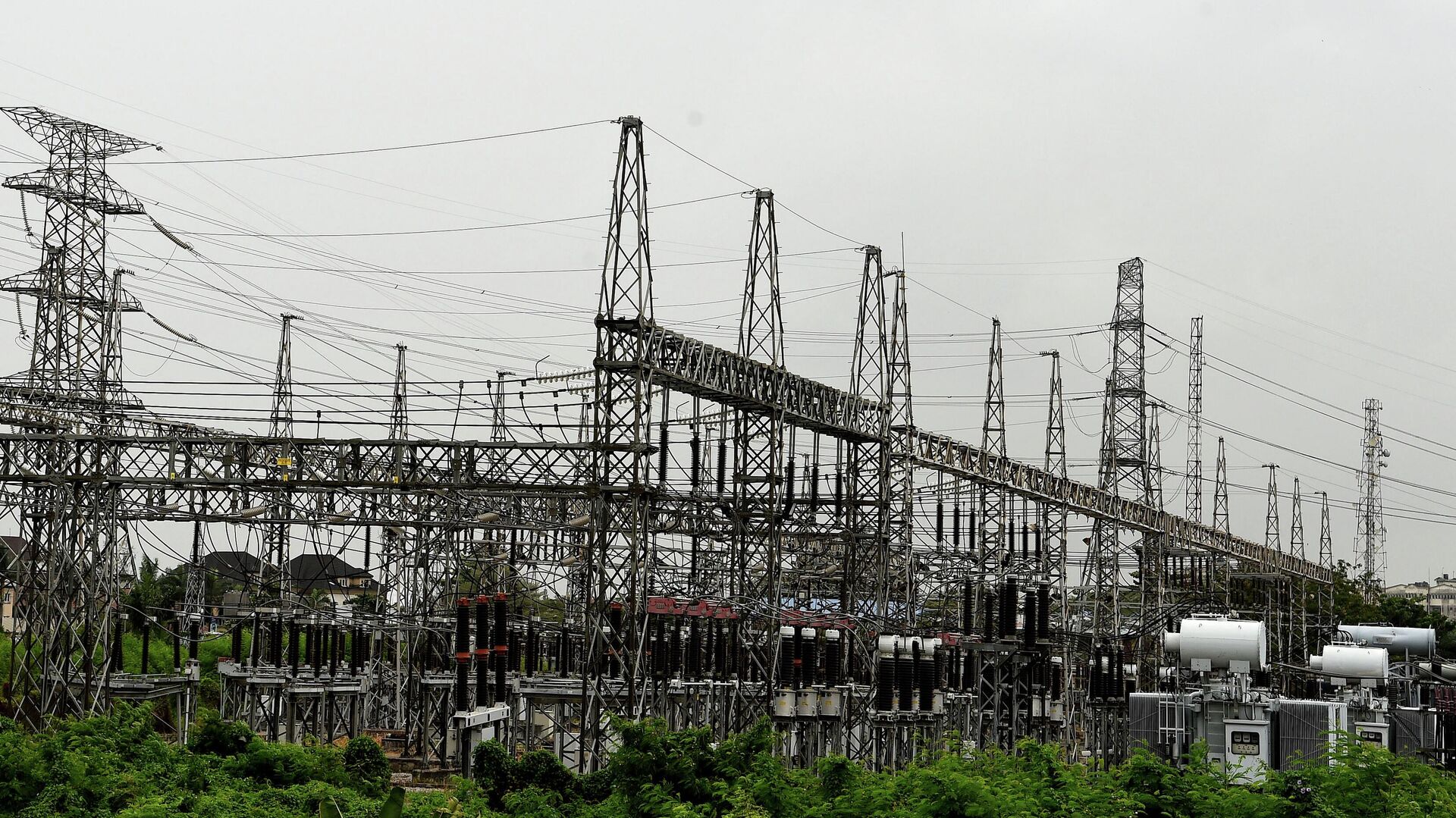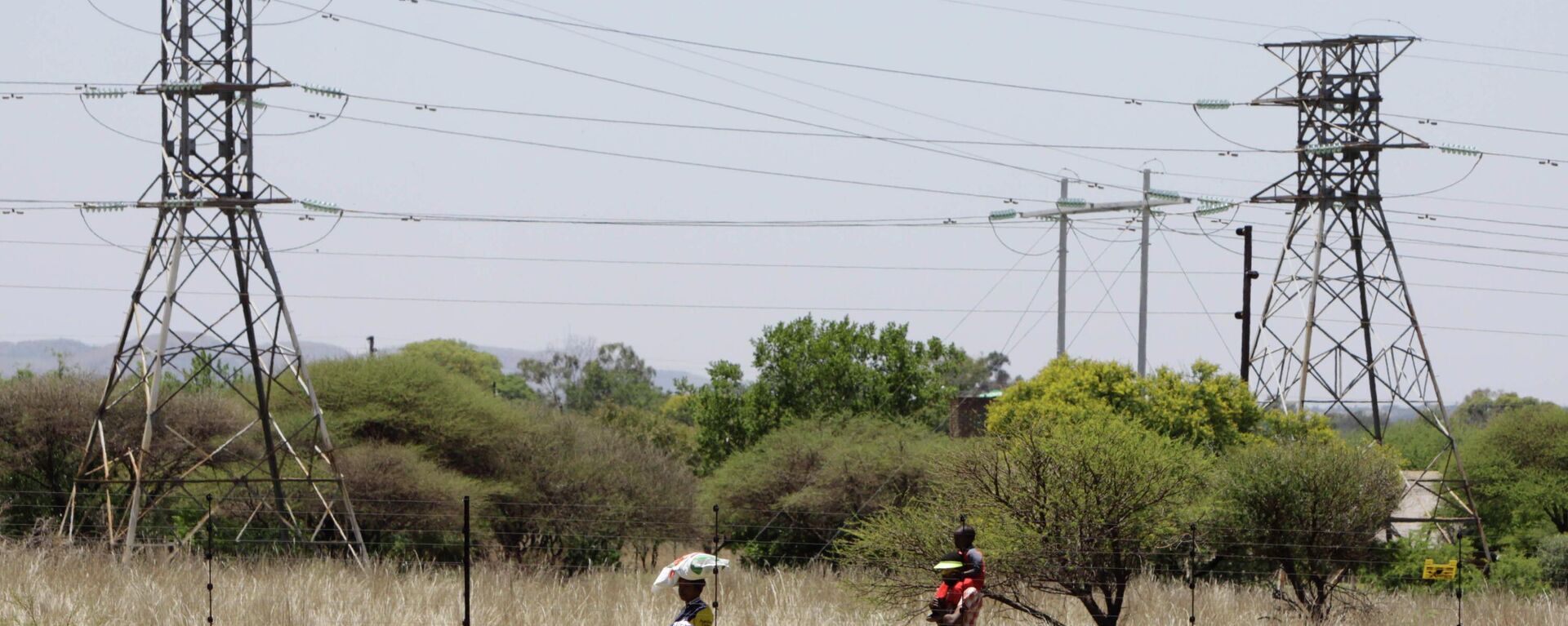Electricity Grid Collapse Causes Blackouts in Nigeria
07:11 GMT 27.09.2022 (Updated: 11:36 GMT 23.11.2022)

© AFP 2023 / PIUS UTOMI EKPEI
Subscribe
Businesses in Nigeria deal with damaged equipment and inventory, as well as loss of productivity and revenue due to common blackouts, according to an invited expert, cited by Nigerian News Central TV.
Electricity cuts are being experienced in Nigeria, as the national grid collapsed on Monday, according to Ikeja Electric, the country’s largest electricity distribution company.
Dear Esteemed Customer,
— Ikeja Electric (@IkejaElectric) September 26, 2022
This is to inform you that the outage you are currently experiencing is due to the system collapse of the national grid, which occurred earlier today at 10:50hrs. This has affected the Transmission Stations within our network and resulted in the loss... pic.twitter.com/Dot1E6jfF6
IBEDC, another large Nigerian electricity distribution company, confirmed on Twitter that "there was a system collapse on Monday, September 26, 2022 at around 10:52 am" and the company is working along with its partners to "ensure the speedy restoration of the power supply."
The Transmission Company of Nigeria (TCN) stated that “the incident was a result of sudden drop in system frequency, which created system instability.”
It also mentioned that “a full-scale investigation is being conducted to establish and ascertain the cause of the partial disturbance as the unwholesome event has resulted in aggregated generation loss.”
@TCN_NIGERIA wishes to inform the public that the national grid experienced partial system disturbance at about 10.51am today, 26th, September 2022. The incident was a result of sudden drop in system frequency, which created system instability.The restoration of the affected part pic.twitter.com/SbuD4knEtR
— TCNNIGERIA (@TCN_NIGERIA) September 26, 2022
Over the last twelve years, Nigeria’s power grid has been through more than 200 partial and total collapses, the Nigerian Electricity Regulatory Commission (NERC) stated.
On August 17, Nigeria’s power plant workers kicked off a nationwide strike, that has left Africa’s most populous country partly in darkness for 24 hours.
The striking workers hope to force their government to implement the terms of a 2019 agreement which offered salaries to retired workers of a former state-owned power company.
The strike was suspended after the government promised to consider the demands.
Earlier power collapses happened in July, June, twice in March and twice in April this year, according to local media reports.
Gas constraints, water management challenges, gas pipeline vandalism, and general system imbalance were among the main reasons of recent breakdowns, the authorities explained.
In June the Nigerian government made statements, according to which the power supply in the country should harden from July 1 of this year.
“We might not have 24/7 power supply from July 1 but Nigerians will see the trajectory because the target is to have an average of 5,000MW daily for transmission and distribution,” the Nigerian Electricity Regulatory Commission Chairman Sanusi Garba assured citizens on June 15.
Widespread blackouts are among the main issues that hold back Nigeria’s economic growth, preventing businesses from running smoothly, Reuters reports.
Both Nigerian businesses and household are forced to maintain its vitality relying on diesel-powered generators, which operating coats has rapidly increased since the start of the year due to soaring fuel prices.



